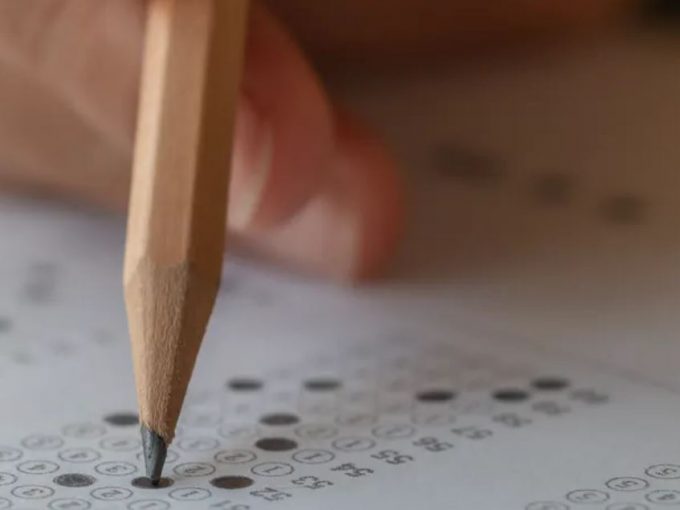
www.shutterstock.com
<h2><span data-contrast="auto">New Zealand’s students may receive a higher 2022 PISA score than expected due to a skewed sample, says the Ministry of Education. </span><span data-ccp-props="{";201341983";:0,";335559739";:160,";335559740";:259}"> </span></h2>
<p><span data-contrast="auto">The Programme for International Student Assessment (PISA) is a two-hour test for 15-year-olds testing literacy, numeracy, science literacy and – in 2022 – creative thinking. It is delivered across the OECD every three years and can be used for international comparisons as well as tracking educational attainment over time. </span><span data-ccp-props="{";201341983";:0,";335559739";:160,";335559740";:259}"> </span></p>
<p><a href="https://www.schoolnews.co.nz/latest-print-issue/" target="_blank" rel="noopener"><strong>Read the Term 4 edition of <em>School News</em> HERE</strong></a></p>
<p><span data-contrast="auto">The results of the 2022 cohort are due out in December, but the Ministry of Education has already </span><a href="https://www.educationcounts.govt.nz/publications/series/2543/pisa-2022/pisa-2022-non-response-bias-analysis" target="_blank"><span data-contrast="none">released an analysis</span></a><span data-contrast="auto"> which states that New Zealand’s scores are likely to be about 10 points higher due to sampling bias resulting from challenges and barriers associated with Covid-19. </span><span data-ccp-props="{";201341983";:0,";335559739";:160,";335559740";:259}"> </span></p>
<figure id="attachment_16776" aria-describedby="caption-attachment-16776" style="width: 300px" class="wp-caption alignnone"><img class="size-medium wp-image-16776" src="https://www.schoolnews.co.nz/wp-content/uploads/2020/06/AdobeStock_187619452-300x200.jpeg" alt="" width="300" height="200" /><figcaption id="caption-attachment-16776" class="wp-caption-text">Image: AdobeStock 187619452</figcaption></figure>
<p><span data-contrast="auto">The report states that schools and students are generally randomly selected through a two-stage stratified sampling design. Schools are randomly selected to ensure a representative sample, and from those schools, students are again randomly selected to provide a representative sample of that school’s student body. </span><span data-ccp-props="{";201341983";:0,";335559739";:160,";335559740";:259}"> </span></p>
<p><span data-contrast="auto">In 2022, 227 English-medium schools with 15-year-old students were randomly selected from Aotearoa New Zealand’s pool. Larger schools were more likely to be selected due to their larger proportion of 15-year-old students. From these schools, 25 – 75 students were selected to participate. However, only 72 percent of selected schools and students participated. Usually, PISA has strict international participation standards of 85 percent of schools and 80 percent of students. </span><span data-ccp-props="{";201341983";:0,";335559739";:160,";335559740";:259}"> </span></p>
<p><span data-contrast="auto">At the time of selection, RNZ reported that some Principals refused to participate due to Covid-19 related pressure on their students. </span><span data-ccp-props="{";201341983";:0,";335559739";:160,";335559740";:259}"> </span></p>
<p><span data-contrast="auto">A briefing paper from 2022 to Jan Tinetti said “the reason nearly all declining schools have given relates to Covid-19 &#8211; either due to staff shortage/ burdens, student learning loss and/ or the two years of disruption and stress on students and staff.”</span><span data-ccp-props="{";201341983";:0,";335559739";:160,";335559740";:259}"> </span></p>
<p><span data-contrast="auto">Then Secondary Principals Association president Vaughan Couillault </span><a href="https://www.rnz.co.nz/news/national/466836/schools-blame-covid-19-pressures-for-decision-to-bypass-pisa-tests" target="_blank"><span data-contrast="none">said to RNZ</span></a><span data-contrast="auto">: &#8220;Because of what my school has been through in the last 18 months with Covid response and disruption to learning, my senior leadership team and I made the decision that it would be a disruption that we could do without. Because it is quite burdensome to engage in the particular testing that we&#8217;re talking about.”</span><span data-ccp-props="{";201341983";:0,";335559739";:160,";335559740";:259}"> </span></p>

Industrial, legal action and unrest between the education sector and the Ministry of Education rises…
Tumuaki Billie-Jean Potaka Ayton shares her perspectives on leadership, and building a community around your…
As well as physical access to spaces, a culture of inclusivity means valuing and respecting…
School design changes with the education ideology changes of the eras, explain New Zealand and…
In this op-ed, Rebecca Thomas encourages educators to pause and rediscover their fire and passion…
Curriculum rewrites at the Ministry of Education are struggling with a lack of clarity, according…
This website uses cookies.